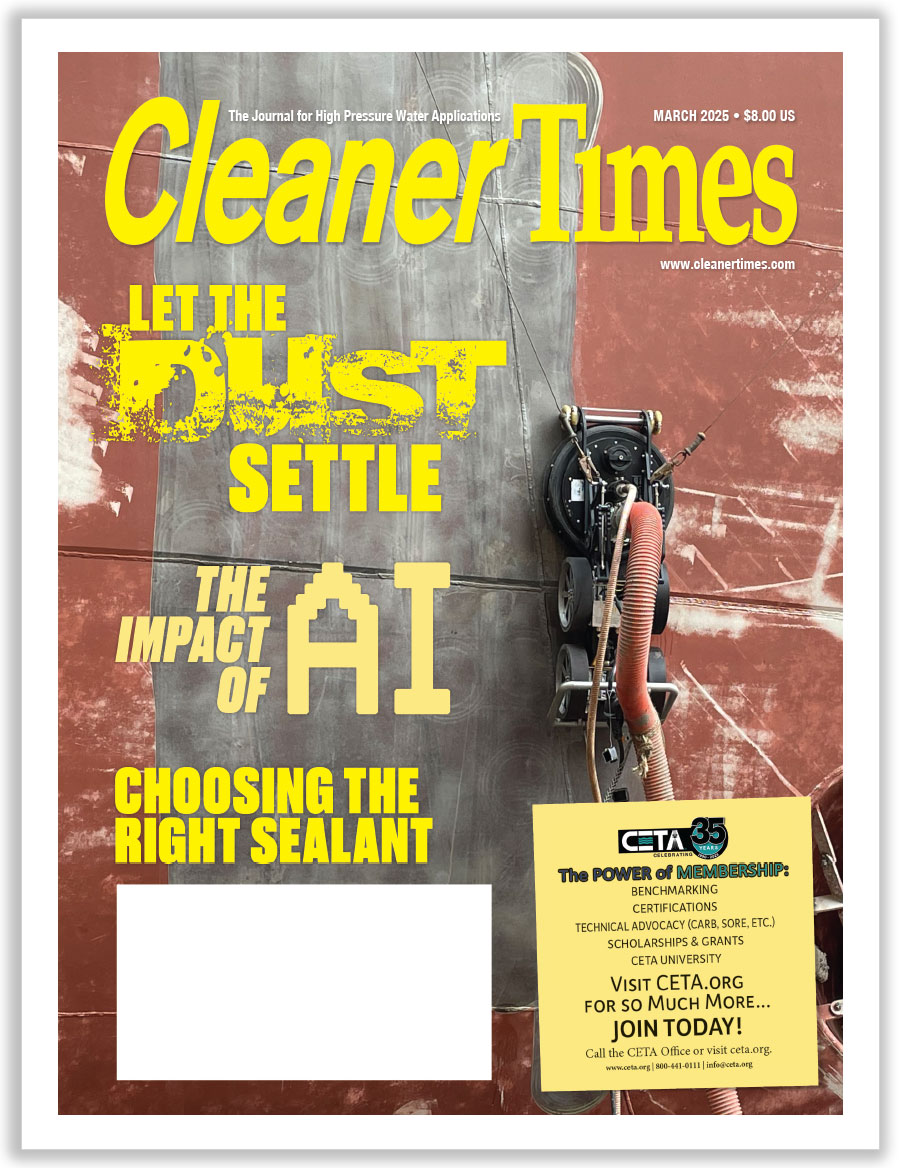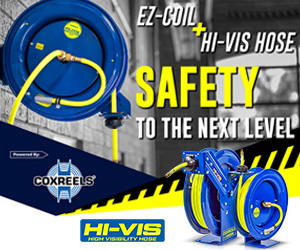
New Rules for Taxing Pass-Through Income
By Mark E. Battersby / Published April 2018

Pass-through business entities, pressure cleaning businesses operating as partnerships, limited liability companies (LLCs), S corporations, and sole proprietorships have long been extremely popular. In fact, one form of pass-through business entity, the S corporation, is currently the most-used business entity. Limited liability companies (LLCs) are the pass-through entities most frequently chosen today.
Unfortunately, thanks to the recently enacted “reforms” under the Tax Cuts and Jobs Act (TCJA), the owners of many small businesses operating as pass-through entities will face personal tax rates as high as 29.6 percent—far above the new 21 percent corporate tax rate. Little wonder that many have begun considering switching to the basic ‘C’ corporation for their pressure washing operations.
Passing Through Businesses
In addition to profits being taxed only once, not at the business level but rather only when passed onto the owner’s tax returns, many pressure cleaning professionals choose to operate as so-called “pass-through” business entities because of the protection from personal liability.
As mentioned, under the just passed TCJA, the tax rate for incorporated pressure cleaning businesses will be reduced from the former 35 percent rate to 21 percent for the 2018 tax year and thereafter. And, although the individual tax cuts are only temporary, expiring in 2026, the business tax cuts are, for the most part, permanent.
Pass-Throughs
A business electing to incorporate as an S corporation or choosing to be treated as another type of pass-through entity has its business income taxed only once, similar to the manner in which sole proprietorships are taxed. By electing to operate as a pass-through entity, a pressure washing professional can benefit from the legal advantages available to businesses with a corporate structure as well as the tax advantages available to partnerships.
One of the best features of a pass-through entity, such as an S corporation, was the tax savings for both the pressure cleaning business and its shareholders. While “members” of an LLC are subject to employment tax on the entire net income of the business, only the wages of the S corporation shareholder who is an employee are subject to employment tax. The remaining income is paid to the owner as a “distribution,” which is taxed at a lower rate, if at all.
An S corporation designation allows a business to have an independent life, separate from its shareholders. If a shareholder leaves the pressure cleaning business or sells his or her shares, the S corporation can continue doing business relatively undisturbed. Similar rules now also apply to partnerships. Maintaining the business as a distinct, separate entity defines clear lines between the shareholders and the business that improve the protection of the shareholders.
A Limited Liability Company (LLC) is, on the other hand, a business structure that combines the pass-through taxation of a partnership or sole proprietorship with the limited liability of a corporation. As is the case with pressure cleaning professionals in partnerships or sole proprietorships, LLC “members” report business profits or losses on their personal income tax returns; the LLC itself is not a separate taxable entity.
While pass-through entities are generally not subject to federal income tax, they may be liable for and required to make estimated tax payments based on a number of entity-level taxes such as “built-in gains” or BIG taxes, LIFO recapture, passive income tax, voluntary and involuntary terminations, as well as the accumulated earnings tax.
Other Partnership Taxes
As a general rule, losses incurred by a pass-through entity cannot be claimed by the shareholder or partner in excess of the amount they have invested, their “basis.” And, not too surprisingly, there are several tax issues pass-through businesses must consider.
Partners, for example, are considered to be self-employed, not employees, and are required to file a Schedule SE with their Form 1040 and pay self-employment taxes. Because of this self-employed status, each partner is also responsible for paying his or her share of Social Security taxes and Medicare.
Partners are responsible for paying double of what a normal employee would pay (because employers normally match employees’ contributions). Of course, the partners’ tax burden is reduced by an allowance for one-half of the self-employment tax that can be deducted from taxable income.
TCJA Pass-Through Businesses
Pass-through businesses pass their income to their owners, who pay tax at their individual rate. The TCJA created a 20-percent deduction that applies to the first $315,000 of income (half that for single taxpayers) earned by pressure cleaning businesses operating as S corporations, partnerships, LLCs, and sole proprietorships.
All businesses under the income thresholds, regardless of whether they’re service professionals or not, can take advantage of the 20-percent deduction. However, the TCJA places limits on who can qualify for the pass-through deduction, with strong safeguards to ensure that so-called “wage income” does not receive the lower marginal tax rates for business income.
For pass-through income above the threshold, the new law also provides a deduction for up to 20 percent but only for “business profits.” In other words, that 20 percent deduction applies only to business income that has been reduced by the amount of “reasonable compensation” paid the owner. That so-called “reasonable” compensation has not been defined by our lawmakers as yet.
Those operating a pass-through pressure washing business lose things like fringe benefits, plus being required to pay themselves “reasonable” compensation and deal with the other restrictions. And, then, there is the elimination of a number of itemized, personal deductions.
Currently, the vast majority of pass-through business owners will no longer be able to deduct state and local income taxes and permitted to write off only $10,000 of their property taxes. A regular ‘C’ corporation faces no similar deduction restrictions.
Switching to Corporate Form
In the eyes of many experts, there is no longer a reason to operate a highly profitable pressure cleaning business as an S corporation or other pass-through entity. However, converting from a pass-through entity to a regular ‘C’ corporation can be a complicated process requiring quite a few adjustments.
Going the other way, a sale of assets by an S corporation that was formerly a ‘C’ corporation during the “recognition period” is subject to a built-in-gains tax. A built-in-gain tax is imposed on the incorporated pressure cleaning business at the highest corporate tax rate, based on the appreciation in asset value that existed on the date the corporation became an S corporation. The shareholders may then be subject to a second tax on distribution of the sale proceeds.
This “double tax” created by imposition of the built-in-gain rules can be eliminated if the corporation holds and sells assets only after the 10-year recognition period has expired. Naturally, the longer the recognition period is, the tougher that is to do.
Under the former rules, distributions made by a S corporation converting to a regular ‘C’ corporation during the post-termination transition period (PTTP) can be tax-free to the shareholders. Distributed funds from those accumulated adjustment accounts can also reduce the adjusted basis of the stock.
Under the new rules in the TCJA, adjustment of a terminated S corporation (even if only changing accounting methods) is taken into account ratably during a six-year period beginning with the year of change.
Decisions, Decisions
The annual tax return provides an opportunity to reconsider the options available to the pressure cleaning business. Entities with more than one shareholder or member can elect corporate status on their annual tax returns. Thus, an entity that is a partnership under state laws may elect to be taxed as a ‘C’ corporation or S corporation for federal taxes by using Form 8832 (Entity Classification Election). Unfortunately, under those so-called “check-the-box” regulations, entities formed under a state’s corporate laws are automatically classified corporations and may not elect to be treated as any other type of entity.
Changing Business Entities
Changing circumstances, changes in the tax laws, and even the success of the pressure cleaning business might prompt a reassessment of the entity used by the business. And, best of all, the annual tax return is not the only option when selecting the entity that makes the most economic sense.
Although many of the tax law’s provisions apply to all business entities, some areas of the law specifically target each entity. Choosing among the various entities can result in significant differences in federal income tax treatment, but there is also more to choosing the right structure for a pressure cleaning business than taxes.
Not only will the decision to change the pressure cleaning business’s entity have an impact on how much is paid in taxes; it also will affect the amount of paperwork required for the business, the personal liability faced by the principals, and, especially important in today’s economy, the operation’s ability to raise money.
To switch or not to switch? If earlier tax law changes are any indication, provisions should be made for switching entities without a penalty. Since every situation is different, the best approach might be to choose the entity for the pressure washing operation based on the current tax law. To help in this decision-making process, professional advice is strongly recommended.





